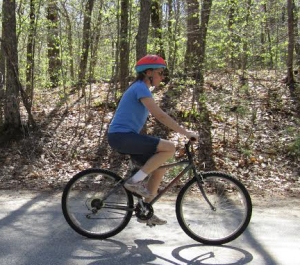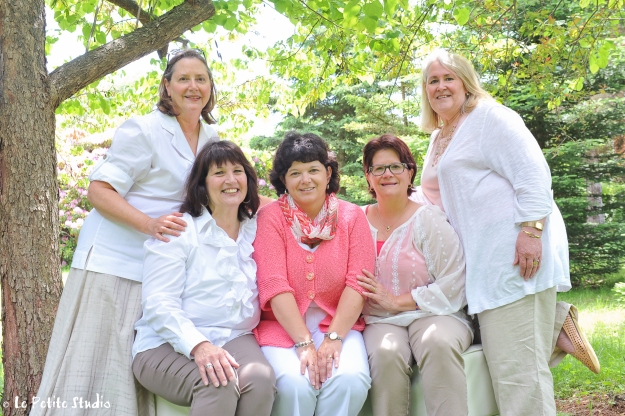 Last year I started an online support group on Facebook called “Parents of Children with Brain Injuries”. For the first time since Isabella’s Acquired Brain Injury (ABI), I no longer felt alone. I have other parents that can relate to how I feel, what is going on with Isabella and they quite simply just “get it”. As a parent to a child with a brain injury we are often misunderstood. We are seen as people who only talk about brain injuries, we are seen as ungrateful, we are seen as overprotective, we are seen as mean for having our child go to therapy etc. Below are 12 things we want you to know about us:
Last year I started an online support group on Facebook called “Parents of Children with Brain Injuries”. For the first time since Isabella’s Acquired Brain Injury (ABI), I no longer felt alone. I have other parents that can relate to how I feel, what is going on with Isabella and they quite simply just “get it”. As a parent to a child with a brain injury we are often misunderstood. We are seen as people who only talk about brain injuries, we are seen as ungrateful, we are seen as overprotective, we are seen as mean for having our child go to therapy etc. Below are 12 things we want you to know about us:
1.) We want you to know brain injuries are an invisible disability. While our child may look “fine” or even as they did before their brain injury, they are no longer the same child they once were. Their brain injury has forever changed them. Brain injuries can cause behavioral changes, emotional instability, impaired cognition, poor judgment and a slew of other things. Trust me, no matter how “great” they look, they are not “fine”.
2.) We want you to know there is no cure for a brain injury. Not all the therapy, medication, doctors, sweat, love and tears will cure their brain injury or bring them back to how they once were. However, we do all that we can to give our child the best possible outcome.
3.) We want you to know we are no longer the same person we were before our child’s brain injury. Some of us have literally watched our child die before our eyes. We have witnessed horrible things and we have also seen some amazing miracles. We can’t be who we once were no matter how hard we try. Our lives are forever changed and as a result so are we.
4.) We want you to know that if our child manages to briefly hold it together when we see you that doesn’t mean that they are “fine” or that we exaggerate. An often time our child is so overwhelmed that the fall out is long after you have gone. That pent up anxiety quickly turns to aggression, crying, panic attacks, anger, and many other emotions.
5.) We want you to know that when you see our child having a tantrum, please don’t judge us or them. Our child doesn’t need to “learn respect”, “get beat or get a whooping” or need to “stay busy to stay out of trouble”. Our child needs love, respect, compassion and understanding. Their brain injury leaves them with little control over their own body and mind. When you judge us it only makes it harder. Trust me we don’t enjoy the tantrum and neither do they.
6.) We want you to know that we can’t just “get over it”. We would love to move on in life as if our child didn’t have a brain injury. We would love to go back to that carefree attitude, a life where this horrible nightmare never happened. Unfortunately this is our reality. Our entire world revolves around brain injury. We talk about it in hopes that you will never have to go through what we have.
7.) We want you to know that sometimes the things you say to make us feel better only make us feel worse. Please don’t say “God only gives us what we can handle”, “I don’t know how you do it”, “I could never do that”, “pray harder”, “everything happens for a reason” or anything along those lines. We have to believe that it is not God’s will to allow our child to suffer from a brain injury. We have to believe that sometimes bad things just happen. Along the same lines, if you were in our shoes you would find a way to make it work too. We have no choice and neither would you. It’s ok if you don’t know what to say to us. We appreciate the honesty. If you want to encourage us, let us know we are doing a good job. It will mean more than anything else you could say.
8.) We want you to know that we grieve. We grieve the loss of the child we once had, we grieve for the future they could have had, we grieve for the innocence they lost, we grieve for the future we had planned for ourselves, we grieve for the impact it has on our family etc. There is no set timeline on how fast or how slow we grieve. Grieving doesn’t make us any less grateful that our child survived. Believe me, we are grateful beyond words. Grieving is yet another part of this journey.
9.) We want you to know that we feel isolated. When the rest of the world has moved on, we are still here stuck at what seems like a standstill. When our child’s brain injury first happened, everyone rallied behind us during this time of crisis. As time goes on they fall to the wayside one by one. Some fall away because we are not able to put in the same effort on the relationship. Some fall away because that common ground is lost. Some fall away because they don’t know how to deal with what has happened etc. We may not be able to socialize like we once were; however, we do like to feel important and as though we haven’t been forgotten.
10.) We want you to know that we refuse to settle for our child even when medical professionals are asking us to. Doctors, nurses, therapists, surgeons and alike can offer their medical opinion but that doesn’t mean that we have to agree. Remember, at one point we were told our child wouldn’t make it and they did. We were told that our child would never walk, talk, eat etc and most of our children do. So when we are being asking to settle for our child, we just won’t. If we settled in the first place, our child most likely wouldn’t be here or be where they are today. We want our child to have the best life possible within their capacity.
11.) We want you to know we worry A LOT. Will my child wake up/talk/walk/eat? Will they die overnight in their sleep from a seizure because I was sleeping? Will medical insurance approve or deny the treatment/therapy/medication that our child needs? What will happen to our child when we die? How do we fight the school system so our child gets the appropriate education with the right accommodations? How to I protect my child from the cruel world who wants to judge them at every opportunity? How do I keep my child from being bullied? How can I get family/friends to understand that I want to be who I was but I am no longer that person and neither is my child?
12.) We want you to know that we often feel guilty. Guilty for missing out on our other children’s lives. Guilty for mourning the loss of our pre-injury child. Guilty that we are jealous of other children without a brain injury. Guilty for wanting or needing a break. Guilty for not doing more. Guilty that our child has a brain injury. Guilty when they are in pain and we can’t fix it.
These are just some of the things that we, parents of a child with a brain injury, want you to know about us. Our child is a survivor of a brain injury. As their parent we are a survivor too. We have seen things that no parent should ever see. We have heard things that haunt us daily. In a world that has only just started talking about brain injuries, we are sadly misunderstood as is our child. We hope that you never have to experience watching your child suffer from a brain injury but should it happen, know that there are other parents just like you.
What would you want others to know about being a parent to a child with a brain injury?
Guest Blogger, Kristin Olliney, is the mother of 8-year-old Isabella, who suffered sudden acute encephalitis when she was just 4. Kristin’s bi-monthly blog, Mommy of a Miracle, talks about the trials and joys of raising a brain injury survivor.
Legal Statement: The information contained in this blog does not reflect the specific views of BIA-MA. This blog is published for informational purposes only. BIA-MA is not providing medical, legal or other professional advice with its publication.
 Guest Blogger, Kristin Olliney-Apruzzese, is the mother of 8-year-old Isabella, who suffered sudden acute encephalitis when she was just 4. Kristin’s bi-monthly blog, Mommy of a Miracle, talks about the trials and joys of raising a brain injury survivor.
Guest Blogger, Kristin Olliney-Apruzzese, is the mother of 8-year-old Isabella, who suffered sudden acute encephalitis when she was just 4. Kristin’s bi-monthly blog, Mommy of a Miracle, talks about the trials and joys of raising a brain injury survivor.








